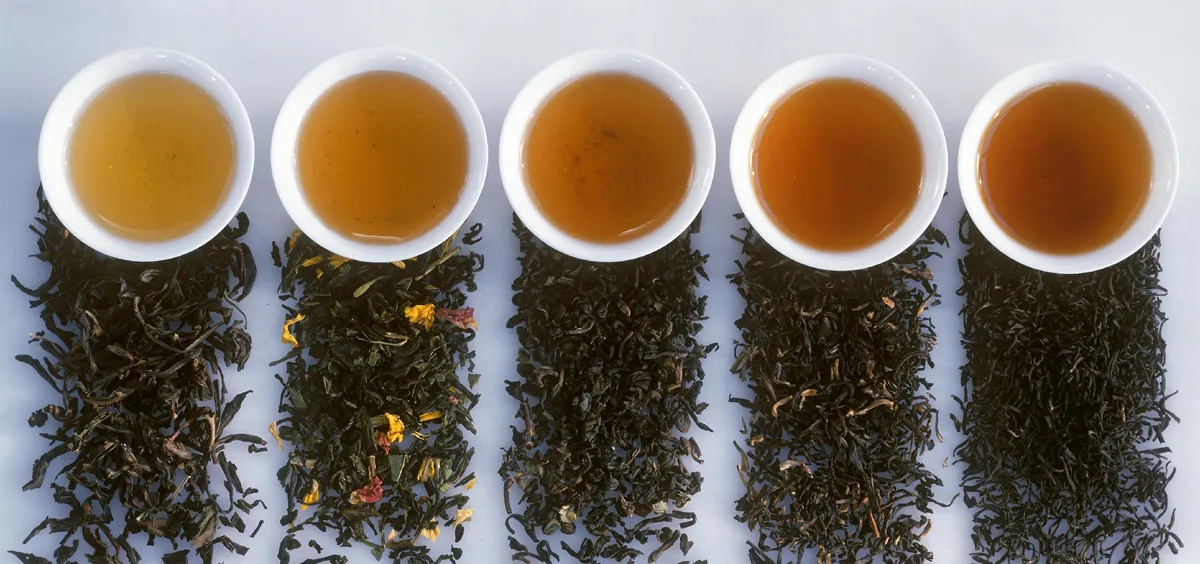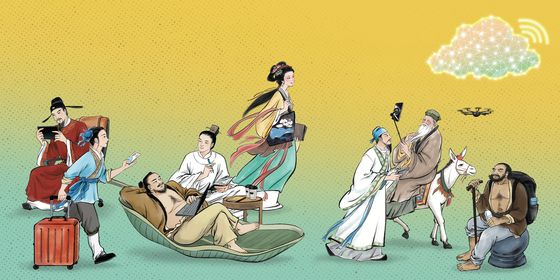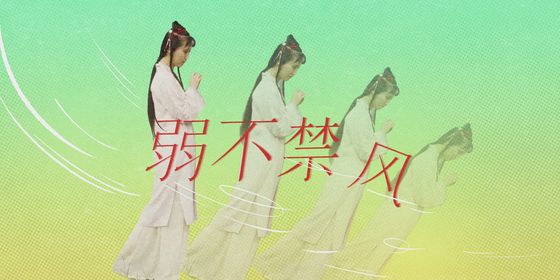Idioms about one of China’s greatest exports
In the 13th century, scholar Wu Zimu summarized people’s daily life into seven necessities: fuel, rice, oil, salt, sauce, vinegar, and tea. If the first six are needed to keep people fed and warm, the last one reflected China’s longstanding love affair with the leafy brew.
Tea has existed in China for thousands of years. Folk tales suggest that the drink was accidentally discovered by Shennong, a legendary god of farming, who tasted various kinds of plants to test them as food or medicine. One day, after a long walk, Shennong felt tired and thirsty, so he rested under a tree and started a fire to boil water in a pot. As the pot boiled, some leaves from a nearby tree fell into the pot. When Shen Nong drank the water, he found it not only sweet and tasty, but refreshing as well.
Historical records show that tea was being consumed and traded in the pre-Qin era (before 221 BCE). During the Tang (618 – 907) and Song (960 – 1279) dynasties, tea culture became highly developed. The first definitive publication about tea, The Book of Tea, appeared during the Tang, and its author Lu Yu was called the “Tea Sage.” Scholars and poets in that period wrote many poems about the brew, leaving over 1,500 “tea poems” on everything from picking to serving to praising tea, many of which are still widely read today.
This splendid tea culture also birthed many chengyu. To celebrate tea, now consumed all over the world, let’s have a look at some tea-related idioms:
茶余饭后 After having dinner and drinking tea
This term was coined by playwright Guan Hanqing of the Yuan dynasty (1279 – 1368), who wrote: “After having dinner and drinking tea, invite old friends to kill time and dispel distress in brothels (茶余饭饱邀故友,谢馆秦楼,散闷消愁).” Now, it is used to refer to one’s leisure time in general.
His disappearance soon became a topic in people’s after-dinner conversation.
Tā de shīzōng hěnkuài jiǔ binchéng le rénmen cháyú-fànhòu de tánzī.
他的失踪很快就变成了人们茶余饭后的谈资。
茶饭不思 Have no appetite for rice or tea
A bad mood can cause someone to lose their appetite. This idiom describes a person’s mood as melancholy or upset.
She must be going through a breakup, since she has had no appetite for rice or tea for days!
Tā kěndìng shì shīliàn le, zhème duō tiān chá fàn bù sī de.
她肯定是失恋了,这么多天茶饭不思的。
人走茶凉 The tea cools down when people leave
Originating from the 20th century revolutionary play Shajiabang, this idiom has come to describe the superficiality of human relations: Once a person loses power, people will immediately begin treating them differently.
Less than three months after his retirement, his previous subordinates had stopped visiting him. How quickly attitudes change!
Tā tuīxiū hái bú dǎo sān gè yuè, yuánlái de nàxiē xiàshǔ jiǔ bù zài lái bàifǎng tā le. Zhēnshi rén zǒu chá liáng!
他退休还不到三个月,原来的那些下属就不再来拜访他了。真是人走茶凉!
粗茶淡饭 Plain tea and bland rice
This term refers to a simple diet, but is also often used to refer to a plain and simple (yet fulfilled) lifestyle.
Looking back, what he misses most are the days living on crude rice and bland tea in the mountains.
Huíshǒu wǎngshì, tā zuì huáiniàn de shì zài shānlǐ nà duàn cūchá-dànfàn de rìzi.
回首往事,他最怀念的是在山里那段粗茶淡饭的日子。
三茶六礼 Three teas and six rites
In ancient times, tea played an important role in marriage customs. Tea leaves were used as a betrothal gift, so the engagement ceremony was called “giving tea (下茶).” The wedding was called the “agreement over tea (定茶),” and “combining tea (合茶)” refers to the first night newlyweds spend together. The “six rites” refer to the rituals of weddings. Together, this idiom means to “marry someone with the proper ceremonies.”
Though she was a woman whom he married with all the proper ceremonies, now she feels like stranger.
Nà shì tā sānchá-liùlǐ qǔ huílai de nǚrén, rújīn què juéde xiàng gè móshēngrén.
那是他三茶六礼娶回来的女人,如今却觉得像个陌生人。
Cover image from VCG












